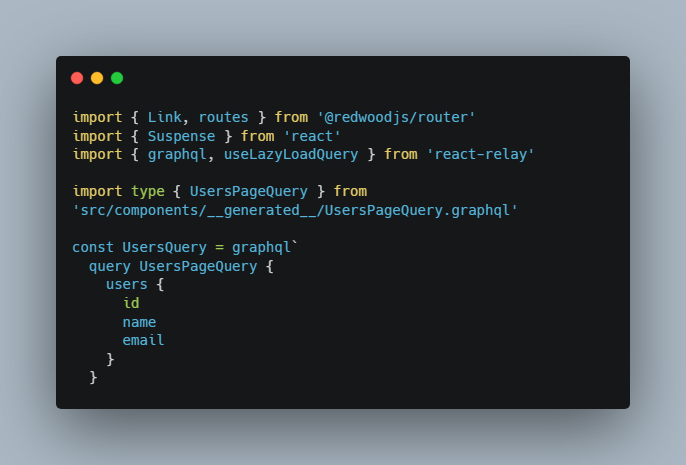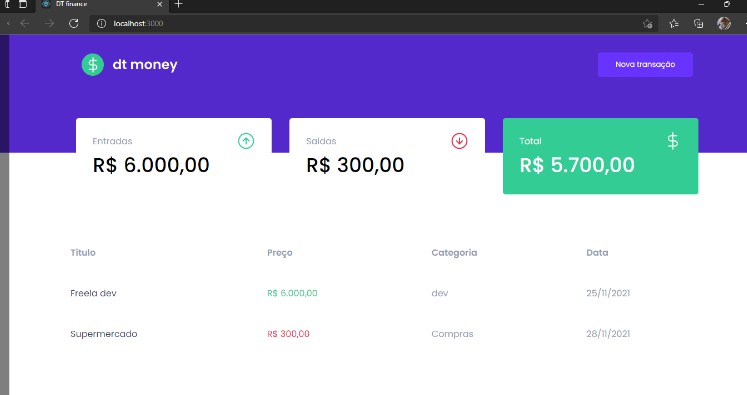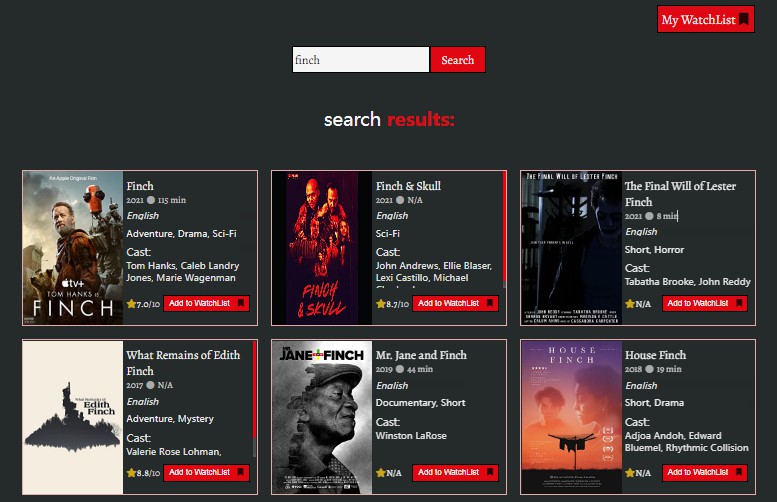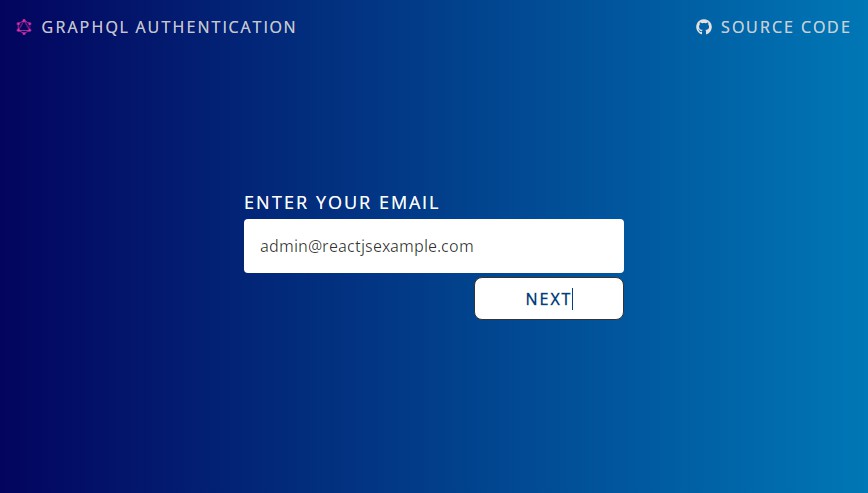Redwood with Relay
Relay is a great GraphQL API client for building scalable GraphQL driven projects. The mindshare for GraphQL clients is a bit like type-systems in JS a few years ago, the vast majority of people use JavaScript (Apollo) and think that the freedom and flexibility is great (Apollo is a good client). However, if you work with a solid type system in JS, you’re very unlikely to go back.
Relay is TypeScript to Apollo’s JavaScript, featuring an incredibly tight feedback cycle and the removal of an entire suite of developer and user concerns in exchange for some restraints on how you build.
Setting up the client
The majority of the Relay setup lives in your web package, with just the babel change living in the root workspace.
Add the client deps:
yarn workspace web add react-relayyarn workspace web --dev relay-config
Create web/relay.config.js:
module.exports = {
src: './web',
schema: '.redwood/schema.graphql',
extensions: ['tsx'],
language: 'typescript',
artifactDirectory: './web/src/__generated__',
exclude: ['**/node_modules/**', '**/__mocks__/**', '**/__generated__/**'],
}
Hook up the babel plugin to the root workspace:
yarn add --dev babel-plugin-relay "graphql@^15.0.0" -W
Then edit the babel config babel.config.js so that the relay plugin is ins:
/** @type {import('@babel/core').TransformOptions} */
module.exports = {
presets: ['@redwoodjs/core/config/babel-preset'],
+ plugins: ['relay'],
}
Set up the compiler:
yarn workspace web add --dev relay-compiler
Add the TS Relay plugin:
yarn workspace web add --dev relay-compiler-language-typescript
And add the script to the root workspace: /package.json:
{
"relay": "yarn workspace web run relay-compiler"
}
Replacing Apollo with Relay
We need to replace the Apollo provider in web/App.tsx:
import { FatalErrorBoundary, RedwoodProvider } from '@redwoodjs/web'
+ import { RedwoodRelayProvider } from './relay/RedwoodRelayProvider'
- import { RedwoodApolloProvider } from '@redwoodjs/web/apollo'
import FatalErrorPage from 'src/pages/FatalErrorPage'
import Routes from 'src/Routes'
import './index.css'
const App = () => (
<FatalErrorBoundary page={FatalErrorPage}>
<RedwoodProvider titleTemplate="%PageTitle | %AppTitle">
+ <RedwoodRelayProvider>
- <RedwoodApolloProvider>
<Routes />
+ </RedwoodRelayProvider>
- </RedwoodApolloProvider>
</RedwoodProvider>
</FatalErrorBoundary>
)
export default App
I have the provider in this repo, it’s likely that in the future this will be abstracted into a library. It currently has a ‘default setup’ mode, but if you know what you’re doing with Relay – you can pass your own Environment.
Setting up a data model
I then edited the schema.prisma to whatever it is now, and scaffolded the user with yarn rw g scaffold user.
Cell No More
Redwood allows you to be able to overwrite the Redwood provided useQuery and useMutation, but I’ve not quite figured out how to get the types in match. These Redwood functions expect an unprocessed graphql query/mutation, but Relay relies on ahead-of-time work which means we can’t use the global gql tag.
That said, it’s likely if you’re using Relay, you won’t want to use the Cell abstraction as they don’t handle merging API grabbing into a single request.
TBD: Preloading Queries
I’ve not figured out about whether you can use the pre-loading APIs, I’d need to understand the Redwood router a bit more first.
So, we’ll go with useLazyLoadQuery which requires the component to be in the render tree before making API requests. This is the same behavior as an apollo version of Redwood, so it’s not a biggie right now.
A Component
I’ve only built out one component so far, which grabs some users from your API:
import { Link, routes } from '@redwoodjs/router'
import { Suspense } from 'react'
import { graphql, useLazyLoadQuery } from 'react-relay'
import type { UsersPageQuery } from 'src/components/__generated__/UsersPageQuery.graphql'
const UsersQuery = graphql`
query UsersPageQuery {
users {
id
name
email
}
}
`
function UsersPage() {
const data = useLazyLoadQuery<UsersPageQuery>(UsersQuery, {})
return (
<div>
{(data.users || []).map((user) => (
<Link key={user.id} to={routes.user({ id: user.id })}>
{user.name}
</Link>
))}
<div className="rw-text-center">
No users yet.
<Link to={routes.newUser()} className="rw-link">
Create one?
</Link>
</div>
</div>
)
}
function Loading() {
return <div>Loading</div>
}
export default () => (
<Suspense fallback={<Loading />}>
<UsersPage />
</Suspense>
)
Run Relay
You’ve got a component, so you need to run
yarn relay
To generate files inside: web/src/components/__generated__
> tree c
web/src/components/__generated__
├── MyPagePageQuery.graphql.ts
├── UserPageQuery.graphql.ts
└── UsersPageQuery.graphql.ts
0 directories, 3 files
(I have some stubbed stuff in here)
Run the Compiler in Watch Mode with your App
Run yarn rw setup webpack to get a webpack config, we’re not actually going to use it to do any config stuff, but to open the Relay Compiler in watch mode whenever our dev server is running:
const { spawn } = require('child_process')
+ let relayCompiler = undefined
+ process.on('exit', (code) => {
+ relayCompiler.kill(code)
+ })
/** @returns {import('webpack').Configuration} Webpack Configuration */
module.exports = (config, { mode }) => {
if (mode === 'development') {
+ relayCompiler = spawn('yarn', ['relay-compiler', '--watch'], { shell: true })
+
+ relayCompiler.stdout.on('data', (data) => {
+ console.log(`Relay: ${data}`.trim())
+ })
+
+ relayCompiler.stderr.on('data', (data) => {
+ console.log(`Relay ERR: ${data}`.trim())
+ })
}
// Add custom rules for your project
// config.module.rules.push(YOUR_RULE)
// Add custom plugins for your project
// config.plugins.push(YOUR_PLUGIN)
return config
}
Making the GraphQL API Relay Compliant
Relay makes two requests for your API:
- You have a global UUID system of Object Identification, and all models have
id: ID!
In our app, we can add a new schema file: api/src/graphql/identification.sdl.ts with:
export const schema = gql`
scalar ID
# An object with a Globally Unique ID
interface Node {
id: ID!
}
`
Effectively telling the GraphQL server that ID is a new scalar (we’ll use String under the hood), then we make the user conform:
export const schema = gql`
+ type User implements Node {
- type User {
+ id: ID!
- id: String!
name: String
email: String!
profileViews: Int!
city: String!
country: String!
}
type Query {
users: [User!]! @requireAuth
+ user(id: ID!): User @requireAuth
- user(id: String!): User @requireAuth
}
input CreateUserInput {
name: String
email: String!
profileViews: Int!
city: String!
country: String!
}
input UpdateUserInput {
name: String
email: String
profileViews: Int
city: String
country: String
}
type Mutation {
createUser(input: CreateUserInput!): User! @requireAuth
+ updateUser(id: ID!, input: UpdateUserInput!): User! @requireAuth
- updateUser(id: String!, input: UpdateUserInput!): User! @requireAuth
+ deleteUser(id: ID!): User! @requireAuth
- deleteUser(id: String!): User! @requireAuth
}
`
That tells the SDL that we’re using an opaque ID in our system. Prisma can generate these for you via:
model User {
id String @id @default(cuid())
name String?
email String @unique
profileViews Int @default(0)
city String
country String
}
@default(cuid()) creates globally unique IDs for you, which is perfect.
- Optional, but Relay makes life very easy if your API server follows the GraphQL Connections Spec. I have orta/redwood-app-connections for the explanation there. There is a connection in
web/src/components/User/Users/Users.tsxthough handling pagination is a good TODO.
Mutations
Mutations require no special casing in comparison to the Relay Docs, here are some examples:
- Delete User Button – inline mutation hook
- Create User – imperitive mutation function which can be called in other places if needed
- Edit User – imperitive mutation function + query (probably a bit too much going on in this component though)
Fragments
One of Relay’s greatest abilities is data-masking (e.g. Relay passes data down your tree, not you) this is done via GraphQL fragments.
You can see this in action in the UserForm, which has:
import { UserForm_user$key } from 'src/components/__generated__/UserForm_user.graphql'
const UserForm = (props: { user?: UserForm_user$key; ... }) => {
const data = useFragment(
graphql`
fragment UserForm_user on User {
id
name
email
profileViews
city
country
}
`,
props.user
)
// ...
}
This form is used in two places:
-
NewUserPage, which does not have a query (there’s nothing to grab for a new user account)
-
EditUserPage, which does have a query, which looks like:
const EditUserPageReq = graphql` query EditUserPageQuery($id: ID!) { user(id: $id) { ...UserForm_user } } `
Then later uses
<UserForm user={data.user} onSave={onSave} loading={loading} error={error} />.
Long Term Maintenance
Now that this repo is mostly complete and there is a full CRUD implementation of a User model in it. I have a sense of how much work would be necessary to do up-keep, and I think I’m willing to commit the time to converting my real app to use Relay and to live a little bit outside the Redwood Omakase.
TODO
- Run relay-compiler on
yarn rw dev - Do the whole CRUD dance
- Use fragments somewhere
- [] Preload queries by facading a Link and
routes?





